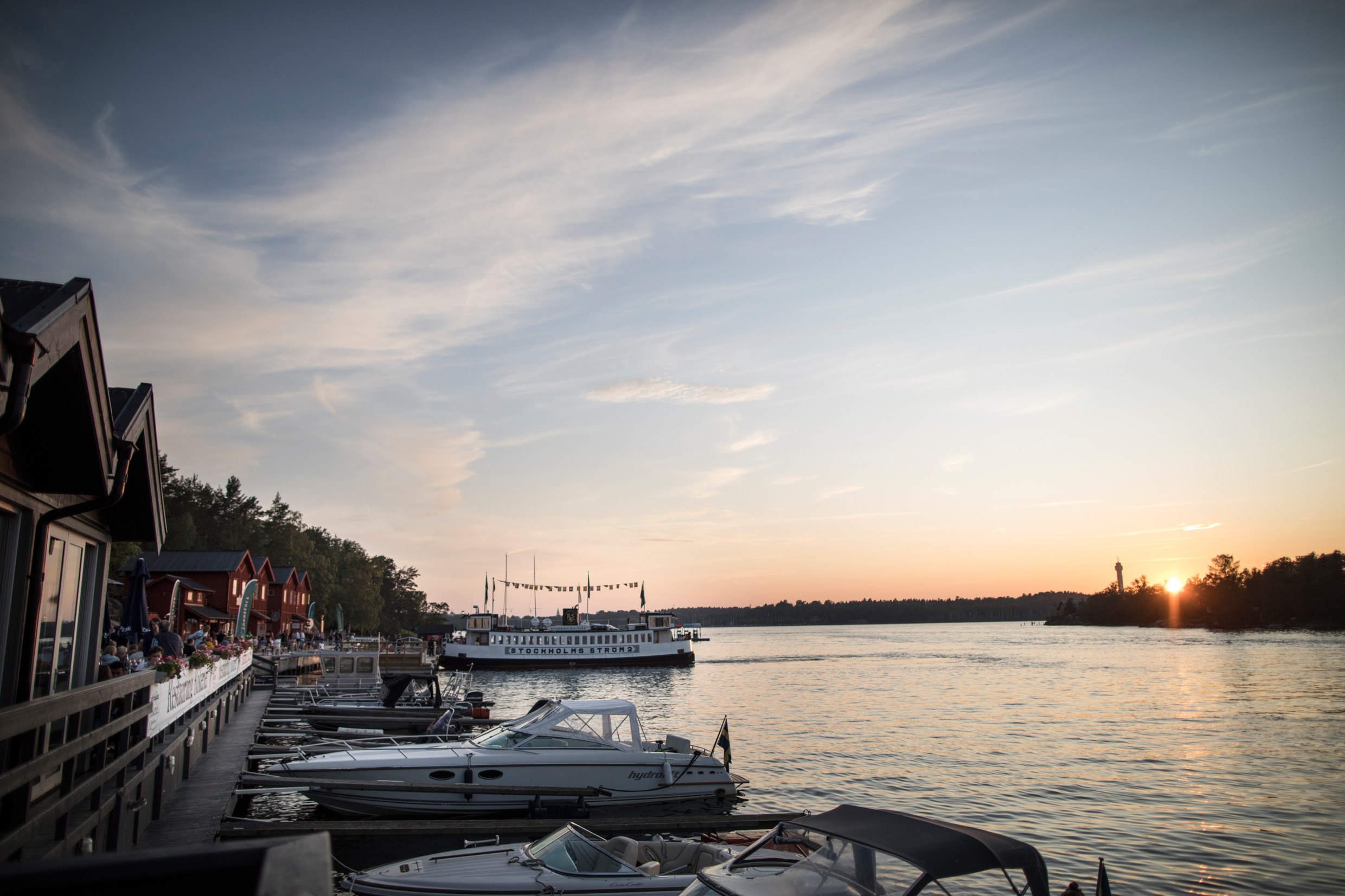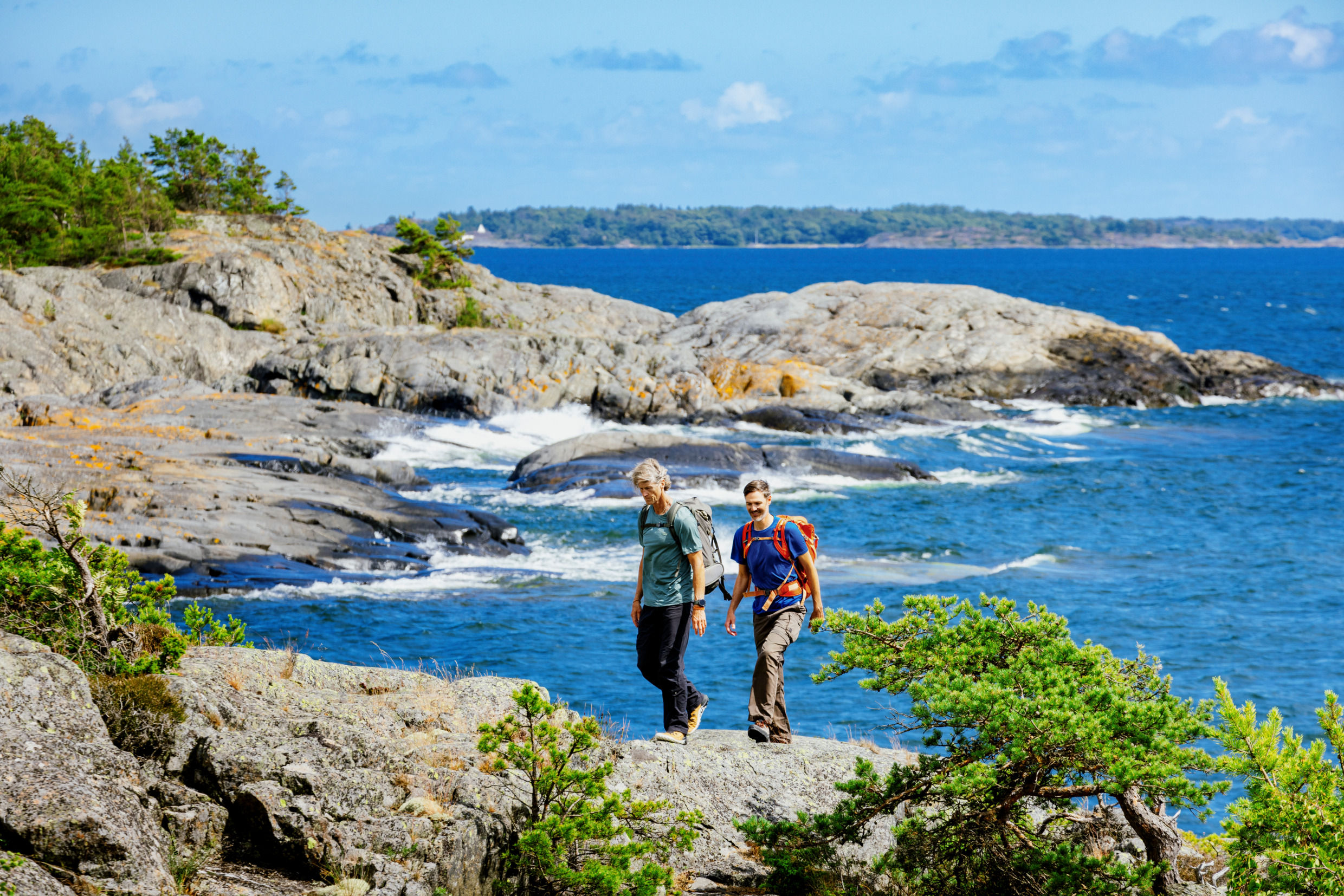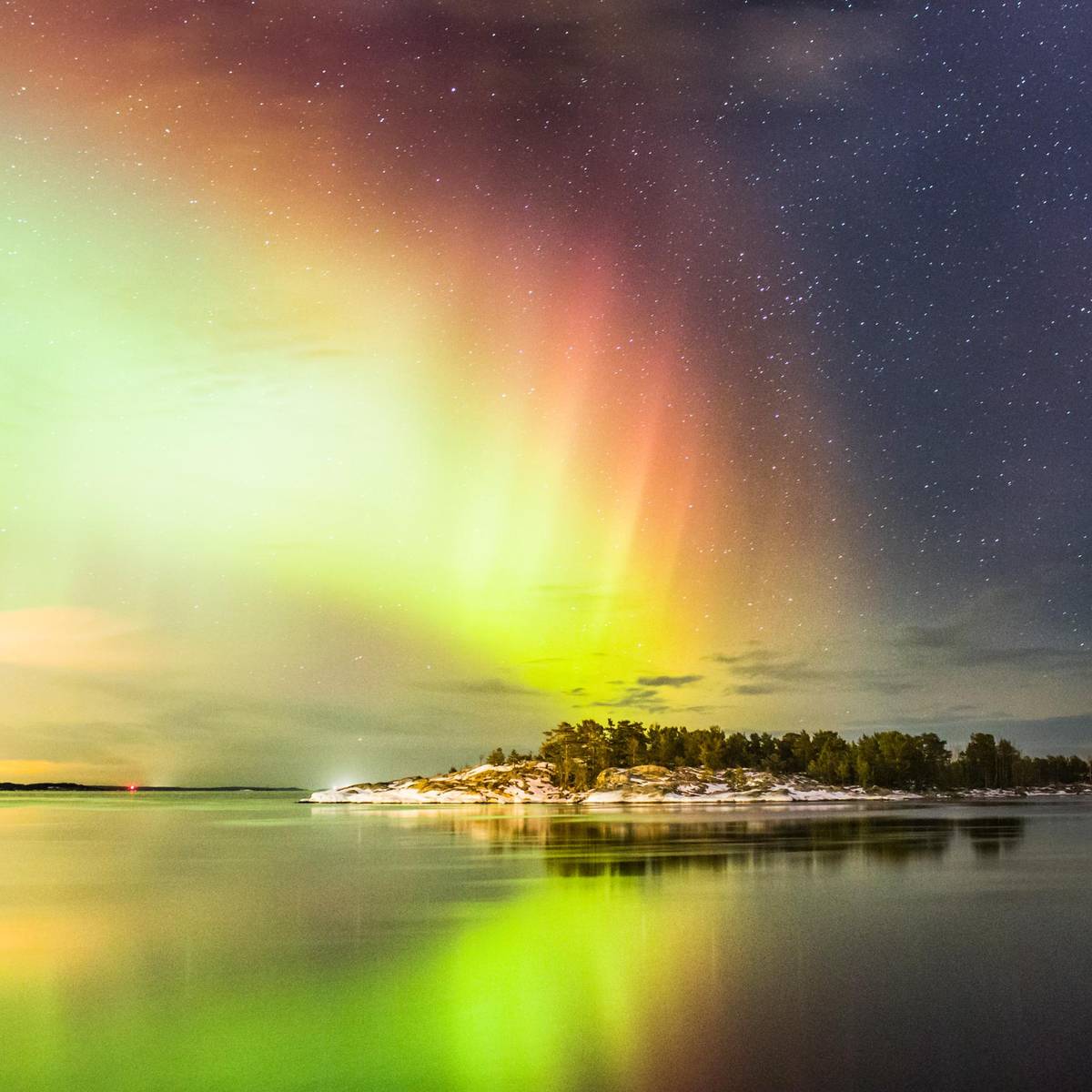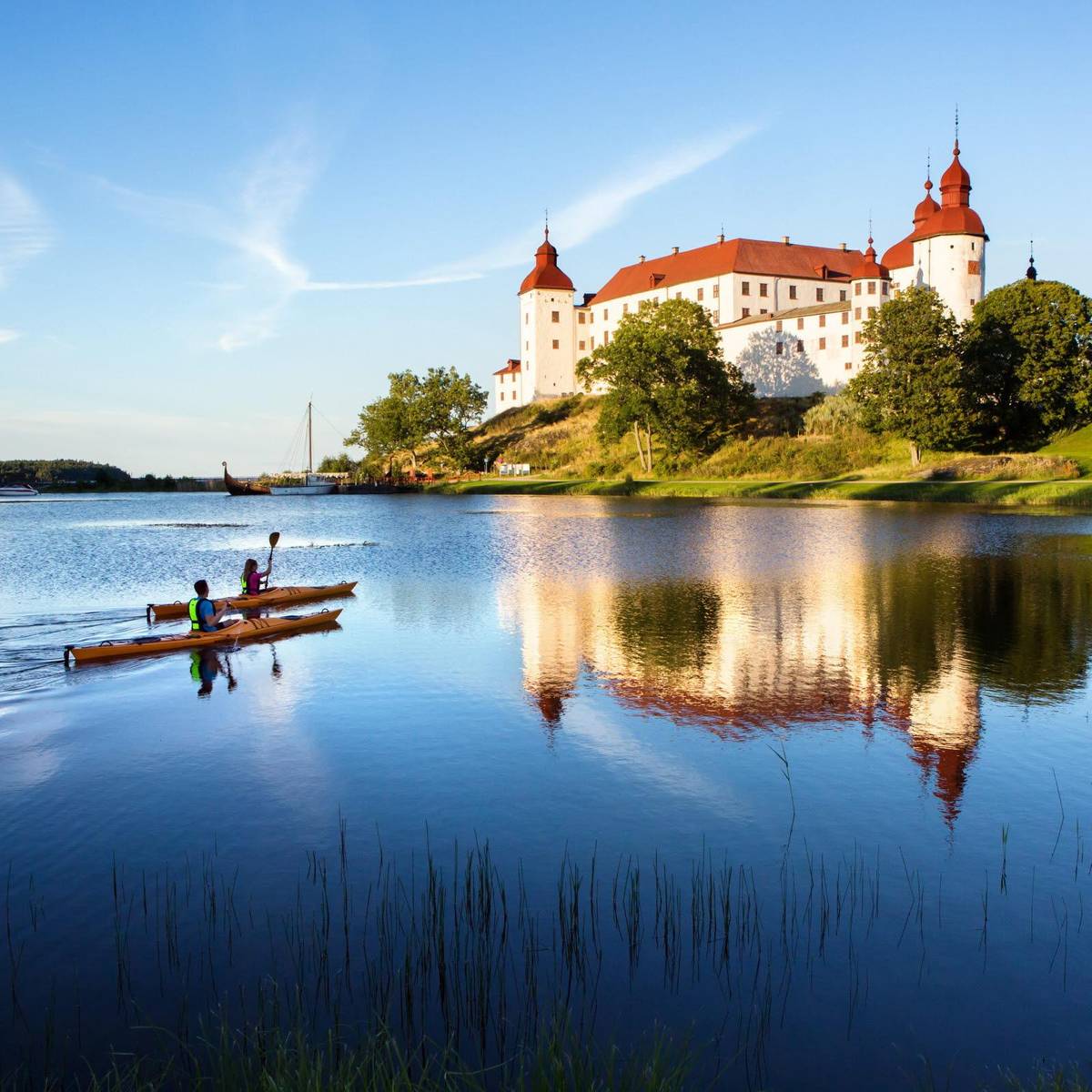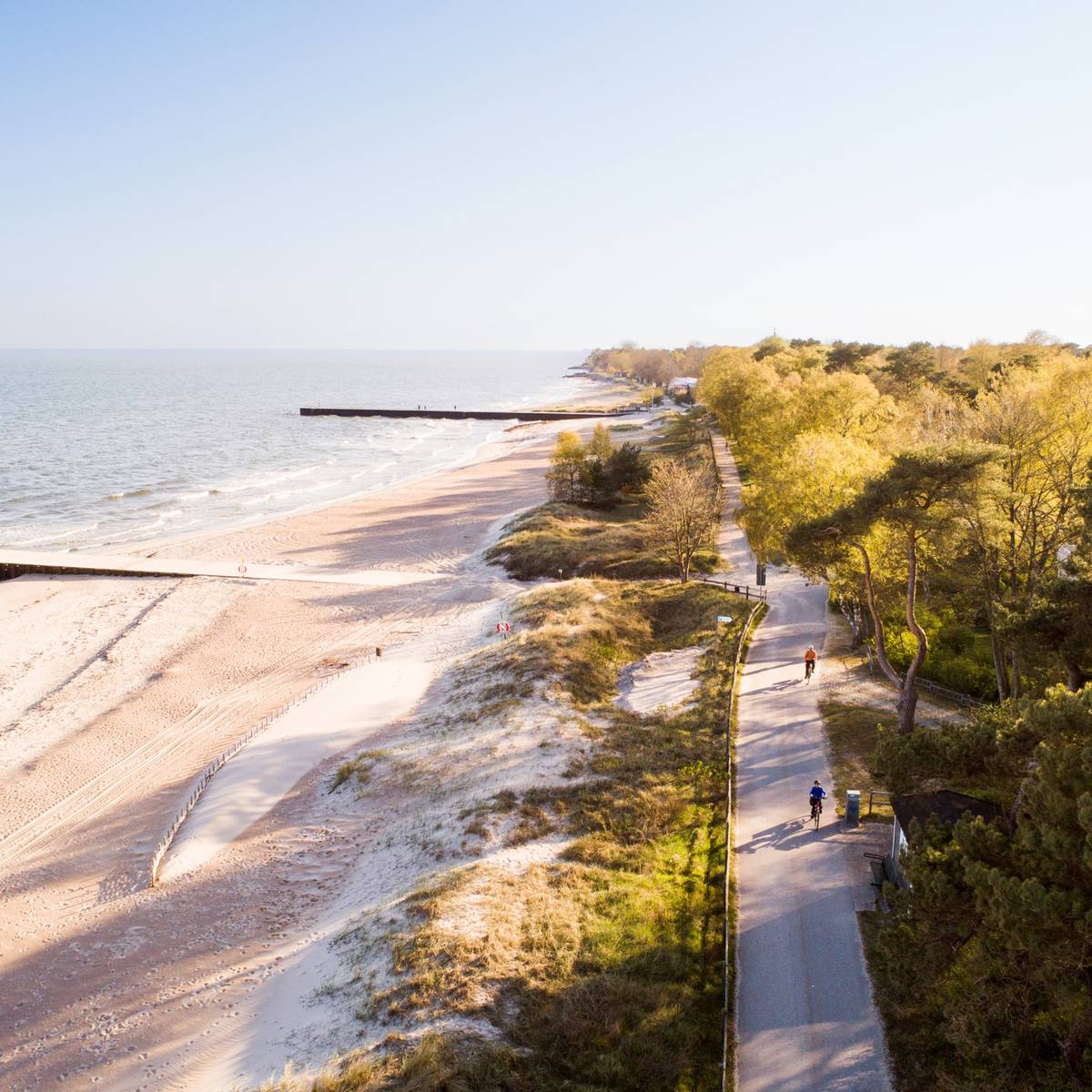The Östgöta archipelago
A bit further down Sweden’s east coast, the Östgöta archipelago consists of some 9,000 islands, which can be divided into four more minor archipelagos: Arkösund, St Anna, Gryt and Tjust. Expect an unspoilt natural environment and many small-scale entrepreneurs.
The Östgöta archipelago is not only a peaceful escape for humans – the many nature reserves make it an ideal place for animals, too. Sheep and cattle graze several islands, and sea eagles are a common sight.
- The Arkösund archipelago is a lively summer destination with good public boat facilities. A former military facility, the Kopparholmarna islands are now a popular day trip with hiking trails and beaches.
- The St Anna archipelago, with its barren islands and rocky reefs, is highly appreciated by kayakers. Many islands are uninhabited, so you can easily find your very own island to watch the sunset or take a swim.
- With its rocky beaches and tranquil atmosphere, the Gryt archipelago is best described as a natural haven. Most islands are protected nature reserves or bird sanctuaries and can only be reached by private boat.
- Parts of the Tjust archipelago are included in the Östgöta archipelago. However, it’s best reached from the town of Västervik in Småland. The Tjust archipelago boasts several gastronomical gems – Idö Skärgårdskrog on Idö and Restaurang Sjökanten on Hasselö, to name but two.
While you’re here…
From Arkösund, it’s possible to take a boat to experience one of Sweden’s most popular tourist destinations, Göta Canal.
While it might not be a typical seaside dish, Östergötland’s specialty ‘raggmunk’ is a Swedish lunch classic at many restaurants. Best described as potato pancakes served with bacon and lingonberry jam, this hearty dish will give you plenty of energy for the archipelago adventures to follow.







